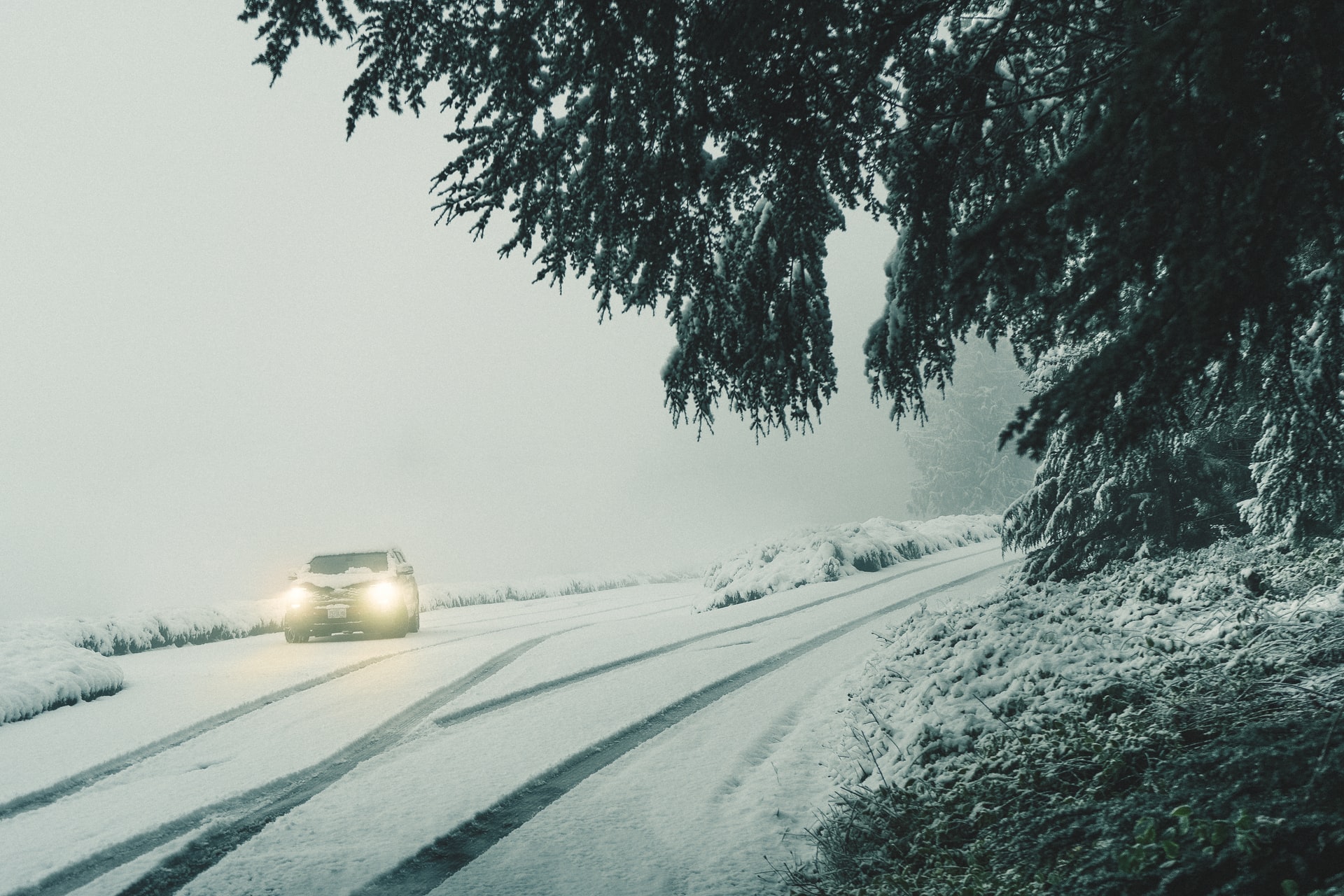Winter can be harsh on your vehicle. We have some safety tips to keep you prepared for wintry weather and its effects on your car.
It’s snow secret that winter is tough on automobiles.
Freezing temperatures, salt-covered roads, and slippery conditions all present their own threats to our cars, and increase the probability of getting into a collision. In fact, over 150,000 car accidents occur every year that are caused by winter road conditions. Of these, about 2,000 result in fatalities and over 130,000 result in personal injuries. While we can’t control the weather, we can mitigate the hazards that winter driving presents.
Conduct a Thorough Inspection
Every system on your vehicle is important, but some parts are more prone to damage or impaired function during the winter season. Be sure to take a look at the following parts of your vehicle.
Battery
Cold temperatures decrease the capacity of batteries, and cold engines take more power to start. This double whammy can kill a battery in the winter. Have your battery checked at the beginning of the season to ensure it’s in good enough shape to get you through the cold winter months.
Antifreeze
The antifreeze in your vehicle keeps your engine cool in the summer, but it also prevents it from freezing in the winter. Antifreeze can leak or break down over time. Have your radiator inspected and cleaned as the manufacturer recommends, and check your antifreeze level when cold temperatures arrive.
Tires
Summer performance tires are not safe to use in temperatures near freezing and below. These tires are made to be extra “sticky” in warm weather for traction, but the composition becomes glass-like in the cold. It’s recommended that you install snow tires on your car for the winter, and check them regularly for wear and tear. To test the tread on your tires, use the penny test. Place a penny upside down, facing you, in your tire tread. If you can see the top of Lincoln’s head, then your tires are bald and need to be replaced.
Lights
Your lights are vital to make sure that you can see, and to ensure other drivers can see you when visibility is low. Check your headlights, high beams, rear lights, brake lights, hazards, and turn signals to lower the chances of getting into a car accident.
Heater
A broken heater won’t leave you stranded by the side of the road, but it will make your commute far less comfortable. It can also be dangerous if you get stuck in the snow, for a period of time without heat. Have your heater checked by a professional.
Winterize Your Vehicle
Winterize your vehicle to prepare for the icy road conditions and low temperatures. Below are a few things to check off your maintenance list.
- Replace your window washing fluid with a winter blend. Winter-specific washing fluid helps defrost your frozen It’s important to use the appropriate washer fluid because a summer blend can freeze in extreme temperatures.
- Road salt can damage your automobile and its finish. Rinsing your vehicle off occasionally at a car wash will help to reduce the damage salt does to your car over time, and a full wash and a coat of wax can help to protect it and keep it looking new.
- Make sure to keep your gas tank at least half full during the winter. Besides giving you a hedge against long idle times if traffic backs up, it will keep water from condensing in the tank, which can freeze and cause hard starts.
- Keep an emergency kit in the car. Your kit should include first aid supplies, flares, dry food that can be eaten cold, flashlight and batteries, a blanket, extra clothes, matches, and a battery powered cellphone charger. An ice scraper and small shovel are also winter essentials. Cat litter is another good item to keep on hand for traction if you get stuck on an icy patch.
- If your vehicle has rear-wheel drive, two bags of sand in your trunk near the wheel wells will help maintain traction on slick roads. The added weight is what gives your tires more grip.
If you’ve suffered a personal injury in a car accident caused by another driver, contact us as soon as possible to schedule your initial consultation for free legal advice from a St. Louis personal injury lawyer near you. We’ll be with you every step of the legal process, fighting for the compensation you deserve.

